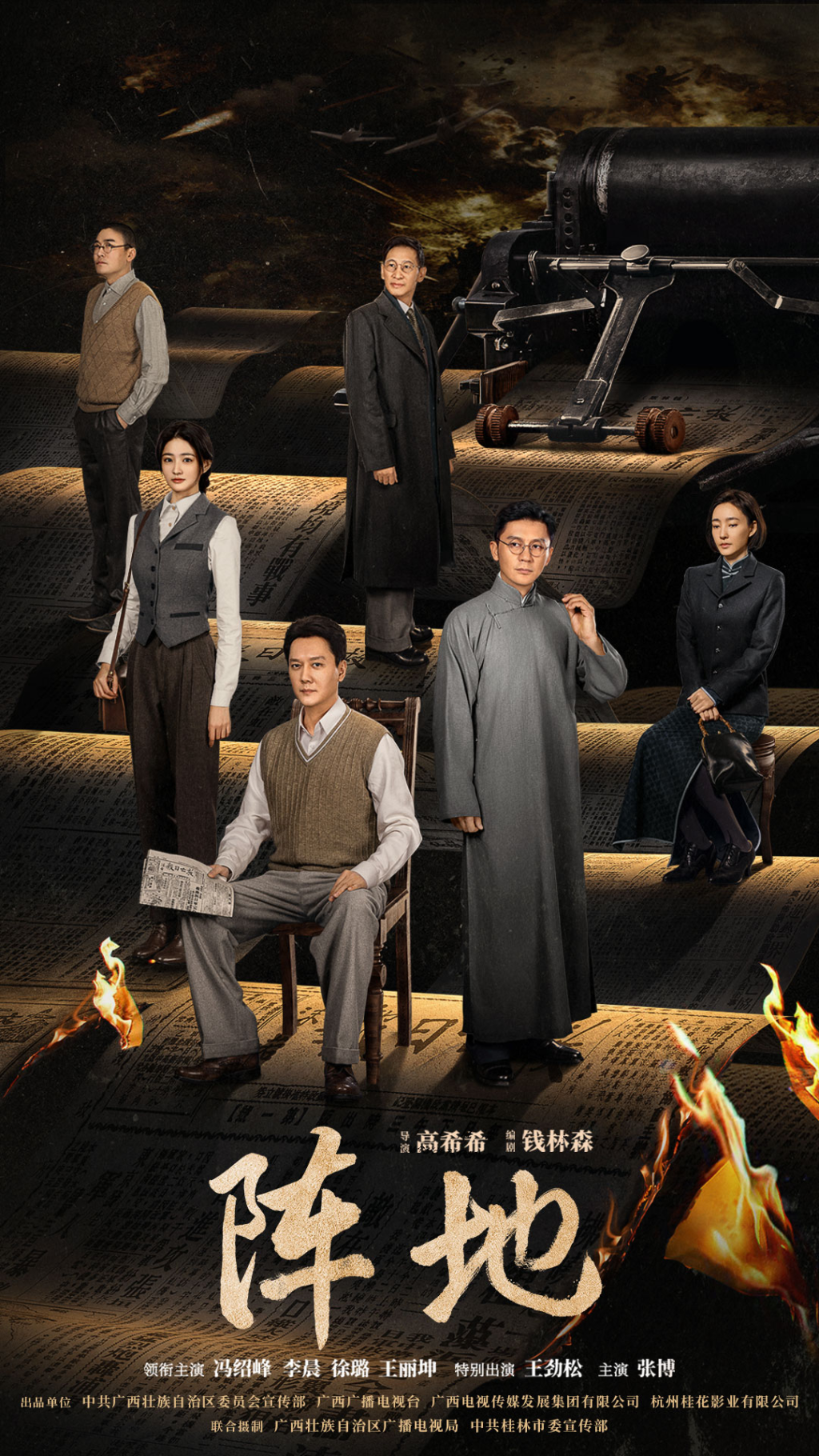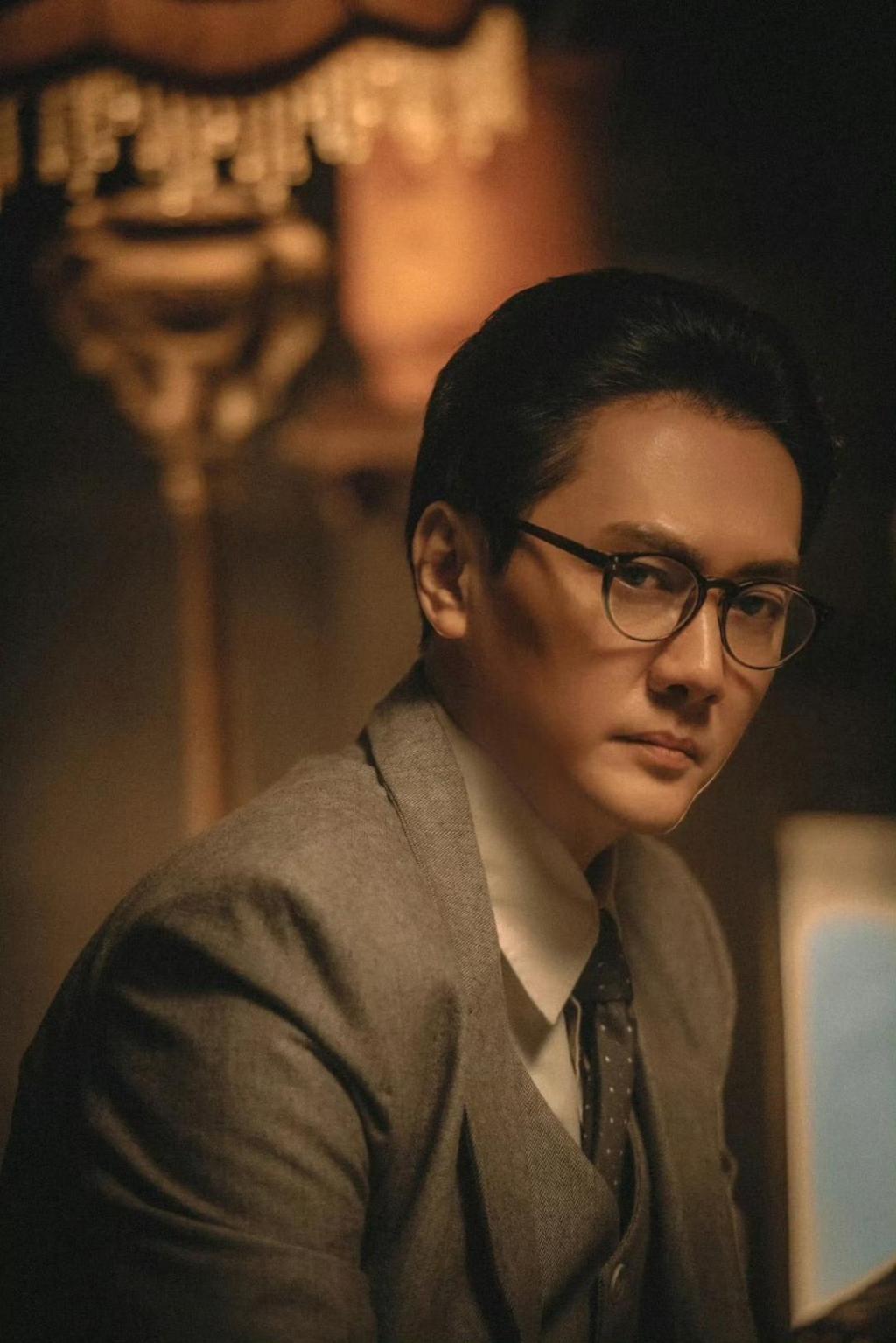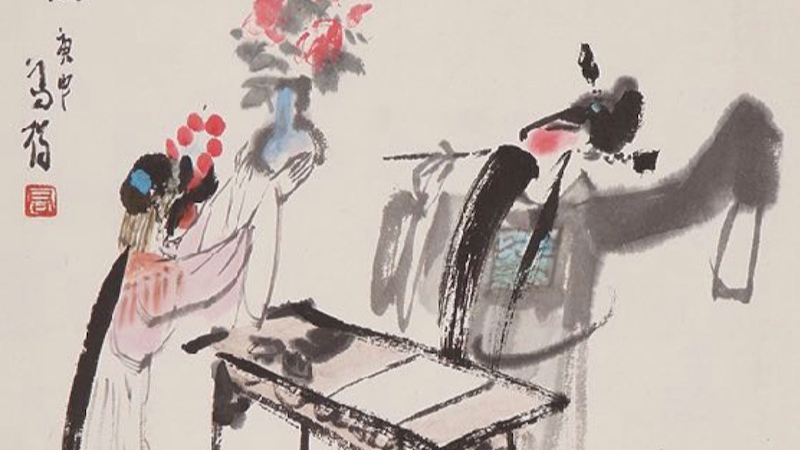
Unite, wield your pen as a spear, and fight the enemy on the cultural battlefield! The cultural resistance drama "Position" premiered on CCTV-1 on September 16th. Set against the backdrop of the Guilin Cultural Resistance Movement from 1938 to 1944, the drama offers a panoramic view of the magnificent history of the Chinese cultural community, under the guidance of the Anti-Japanese National United Front led by the Communist Party of China, using their pen as a spear to defend the cultural front.

"The Position" revolves around the "Anti-Japanese National United Front" and the "Cultural War of Resistance". It uses dual-core narrative and group portrait creation techniques to reproduce many cultural events such as the founding of the "National Salvation Daily", the creation of the drama "One Year", the reform of the Gui Opera "Liang Hongyu", and Tao Xingzhi's cave education. It focuses on portraying the images of dozens of cultural celebrities such as Xia Yan, Guo Moruo, Tian Han, Jiao Juyin, Ba Jin, Xu Beihong, and Feng Zikai who are shining in the history of modern and contemporary Chinese literature, news publishing, music, art, and drama, and shows the personality brilliance and patriotism of Chinese literati at the critical juncture of national survival.
The drama, planned and directed by the Publicity Department of the Guangxi Zhuang Autonomous Region Party Committee, is produced by Yan Conghua, directed by Gao Xixi, and written by Qian Linsen. It stars Feng Shaofeng, Li Chen, Xu Lu, and Wang Likun, with special appearances by Wang Jinsong and Zhang Bo. The drama captures Zhou Enlai's vision, Guo Moruo's magnanimous talent, Xia Yan's calm stewardship, Li Kenong's astute protection, and Tian Han's passionate spirit, as well as the growth and awakening of a generation of young talents amidst the flames of war. The portrayal of these "cultural watchmen" fills a gap in the field of cultural resistance against the Japanese invasion, showcasing the resilience and greatness of cultural power amidst the shadow of war.
The characters reminiscent of textbooks are vividly portrayed. Feng Shaofeng, as the cultural scholar Xia Yan, embodies the elegance of a scholar and the courage of a warrior. Li Chen, as the progressive young man Li Kenong, showcases his growth from impulsive passion to mature and steady self-esteem. Wang Likun, as the female cultural worker An'e, defies the stereotypes of women in anti-Japanese war dramas as either "vases" or "female warriors," showcasing their unique contribution to the cultural struggle. Veteran actor Wang Jinsong, despite a limited role, delivers a powerful line as Guo Moruo: "As long as culture exists, the nation exists." Even more valuable, the cultural figures in the play experience disagreements, confusion, and dilemmas. These authentic contradictions and struggles free the characters from the shackles of the "perfect hero," lending them greater credibility and appeal.

Feng Shaofeng plays Xia Yan
It's worth noting that "Battleground" also embodies a meticulous approach to production. Filming took place on location in Guilin, recreating historical buildings like the former editorial office of the "Jiuwang Daily" and the Guangxi Art Museum. The costumes and props, including the actors' coarse gowns and Mao suits, the old-fashioned pens and yellowed paper on their desks, the slogans and posters lining the streets, and even the characters' spoken dialect and slang, all accurately recreate the atmosphere of the 1940s.
The value of "The Front" lies not only in its historical restoration but also in its profound reflection on reality. At a time of national crisis, cultural figures have protected cultural roots and used the power of culture to unite the national spirit, setting an example for contemporary generations. "The Front" calls on viewers to rediscover the importance of cultural soft power.
As the first TV series to systematically present China's cultural anti-Japanese and national salvation movement, "The Position" takes "Cultural Resistance and the Anti-Japanese National United Front" as its theme. The spirit of "educating people with culture and fighting the war with culture" it conveys still shines brightly after more than 80 years.
